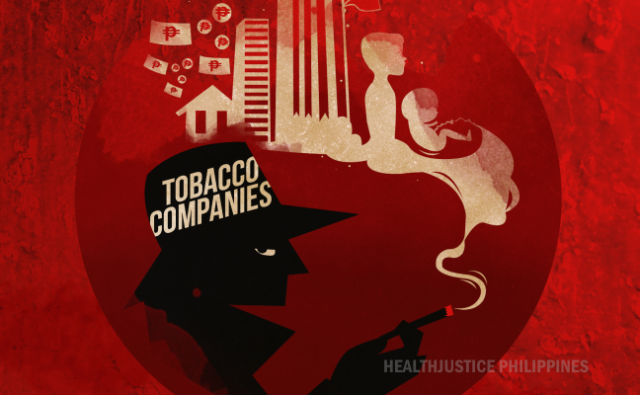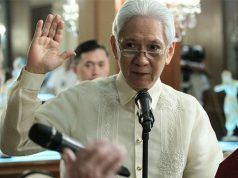MANILA – The Civil Service Commission (CSC) is planning to bring in the Office of the Ombudsman to run after high-level government officials violating the policy on the limited interaction with tobacco companies, CSC Assistant Commissioner Ariel Ronquillo said Friday.
All government officials and employees are to avoid interacting with organizations, associations, and individuals that work for the tobacco industry, including accepting donations, sponsorships, and partnerships with the industry.
Ronquillo said this move is meant to ensure that the policy in the bureaucracy prohibiting government personnel from unnecessary interactions with the tobacco industry is also extended to top government officials.
“The Civil Service Commission as a quasi-judicial body can only run after non-presidential appointees. But, we know very well that if the (tobacco) industry wants to interfere in the operations of any agency, its tendency is to approach those who are at the executive level,” he said during the launch of HealthJustice Philippines’ 2017 Tobacco Industry Interference Index Report in Quezon City.
“But, who is the disciplining authority of these people? Apparently not the Civil Service Commission, but the Office of the Ombudsman,” he added.
The proposal has been met positively by the anti-graft body in previous meetings with the CSC, according to Ronquillo.
Under Joint Memorandum Circular (JMC) No. 2010-01 of the CSC and the Department of Health, all government officials and employees are directed to avoid interacting with organizations, associations, and individuals that work for the tobacco industry.
Government agencies are also prohibited from accepting donations, sponsorships, and partnerships with the industry.
Public heath, corruption, governance
“This is not only a public health matter, there is a corruption issue involved here … If the (tobacco) industry will try to find a way to make its presence felt in the formulation of those policies, then there is a governance issue there,” Ronquillo said.
This policy was created in line with the international obligations of the Philippines under the World Health Organization Framework Convention on Tobacco Control (WHO-FCTC), which urges countries to protect tobacco control policies from commercial and vested interests of the tobacco industry.
Ronquillo stressed that the ulterior motives of the tobacco industry when engaging with the government is always to weaken tobacco control policies and improve their profit positions.
This is why the policy has been crafted in the bureaucracy to prevent tobacco industry interference in government activities.
Cases filed
Ronquillo said cases have been filed against government workers violating the JMC, but some were referred to the Ombudsman because those involved were heads of agencies.
He also noted that the JMC would be better implemented with the Ombudsman’s involvement in the prosecution of top government officials.
“Successful prosecution is always the best deterrence and enforcement of government policies. We want to ensure successful prosecution for violation of the JMC,” he said.
Policy loophole
But despite the current policy regarding the government’s limited dealings with the tobacco industry, HealthJustice Philippines noted in its Interference Report some incidents where the government continued to carry out inappropriate interactions with tobacco industry interests.
But this is not to say, the public health think tank observed in its report, that there has not been “a marked decrease of partnerships and unnecessary interactions between the government and the tobacco companies.”
Tobacco companies found ways to circumvent the policy through “so-called corporate social responsibility” actions by “front groups” of the tobacco industry.
“Tobacco companies continued conducting CSR activities and adjust their strategy by coursing the funds through foundations, civil society organizations, and other groups, such as the American Chamber of Commerce of the Philippines (AmCham),” the report stated.
Incentives, such as lower taxes or duties, have also been enjoyed by some tobacco companies operating inside economic zones, particularly Philip Morris which has a regional tobacco leaf warehouse in Subic and a manufacturing facility at the First Philippine Industrial Park in Batangas.
“The incentives are given to a business operating in the Philippines, but because of Article 5.3 of the FCTC, the government should consider making an exception in the case of the tobacco industry,” the report stated.
Conflict of interest
HealthJustice Philippines also questioned the involvement of organizations with a conflict of interest, such as the Philippine Tobacco Institute (PTI) and the National Tobacco Administration (NTA), in an inter-agency committee tasked to implement and monitor tobacco control laws.
They also mentioned a recorded partnership between the government and the tobacco industry in 2016 during a summit on climate change.
HealthJustice Philippines called for a more efficient implementation and stricter laws to address the loopholes in the JMC.
Read more on the report -> by clicking on this link.
Amendments to the JMC
For the government’s part, Ronquillo said the report of the public health advocacy group was being verified by the CSC, which is now working for the introduction of amendments in the JMC to further strengthen the policy, including the involvement of the Office of the Ombudsman in dealing with violators holding high government positions.
Meanwhile, Dr. Ulysses Dorotheo, FCTC Program Director of the Southeast Asia Tobacco Control Alliance, said tobacco companies should be excluded from government activities, citing action by international organizations calling for a global rejection of the tobacco industry.
He added that, in the Philippines, bills had been filed at the House of Representatives seeking to remove the involvement of tobacco industry in government activities.
“At the end of the day, the objective of the government is to protect and promote the welfare of its people. The objective of the tobacco industry is to improve its profits regardless of the impact of the population,” Dorotheo said.










